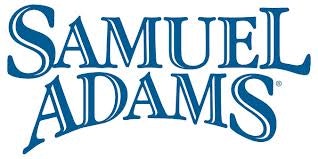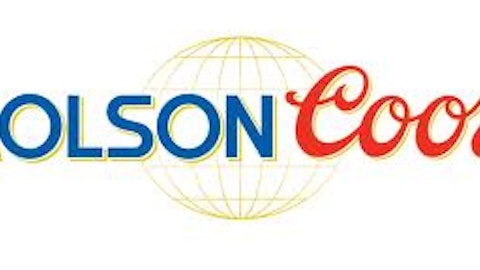
This week, we’re going to turn our attention to some tasty brews and highlight why Martin Roper, CEO of Boston Beer Co Inc (NYSE:SAM), is one incredible leader.
Kudos to you, Mr. Roper
If you go out on a Friday night to your local pub, chances are very good you’ll see a packed house. For us lifetime investors out there, we’re always on the lookout for the next sustainable and revolutionary idea. Even as a beer connoisseur myself, I’m not sure I’d go so far as to call the brewing process revolutionary, but I’d have figured with some certainty that the price inelasticity and brand-name popularity of the alcohol business would provide gains in time of growth and recession. Unfortunately, for many beer and spirit producers, that’s just not the case.
Many mass-produced beer companies, such as Anheuser-Busch InBev NV (ADR) (NYSE:BUD) and Molson Coors Brewing Company (NYSE:TAP), have struggled in domestic markets since the recession as consumers have opted for even cheaper beers, or have decided to pay a premium for craft beers and made the move toward Boston Beer Co Inc (NYSE:SAM) or other small craft brewers. In 2010, for example, sales of Budweiser dropped 7.3% while Miller High Life saw sales dip 4%. This same year saw Sam Adams tack on a gain of 1.7%! This doesn’t even take into account the fact that domestic competition has spiked, with the number of brewers in the U.S. jumping from just 89 in the late 1970s to more than 2,400 by the end of 2012, according to the Brewers Association.
Despite this massive increase in competition and more challenging spending habits from consumers, Boston Beer — maker of the Sam Adams line of beers — has flourished. Founded in 1984 and working its way from the ground up, Boston Beer has relied on its small-guy image to lay claim to 1% of the domestic beer market, or about 3 million barrels of beer each year. For the entirety of 2012, Boston Beer Co Inc (NYSE:SAM) witnessed shipment volume growth of 10% and a robust gross margin of 54.3%.
One of the keys to success for Boston Beer has to do with its chairman and founder, Jim Koch, and its current CEO, Martin Roper, working so closely to grow the brand. In the 29 years since its founding, Boston Beer has had just two CEOs, which is honestly incredible given the revolving door that the CEO position has become over the past decade in nearly all industries. With two long-tenured individuals leading Boston Beer, the leaders and board remain focused and investors spend little time worrying about what’s been solid corporate governance up to this point.
Understanding that its customer base demands a wide variety of options is another way that Boston Beer has excelled. There are more than 50 different varieties of Sam Adams sold throughout the world that cater to the many different palates and diets that exist. With essentially a beer for everyone, Sam Adams has encompassed a global audience without sacrificing the individuality that makes it the largest craft brewer.
A step above his peers
In addition to delivering fantastic top- and bottom-line results, Boston Beer Co Inc (NYSE:SAM) has been known to do right by its investors, its employees, and in the community.
Although Boston Beer doesn’t pay a dividend (something you can find with Molson Coors or Anheuser-Busch InBev), it makes up for it with phenomenal growth that’s resulted in 1,116% share price appreciation over the past decade. So even without a dividend, shareholders have done pretty well.
Boston Beer’s employees are doing well, too. One incredible perk is that many employees enjoy a flexible scheduling policy that allows them to choose their own hours to work. In Boston, the company’s headquarters, employees often get to work from their homes twice a week. In addition to flexible scheduling, employees are given two free cases of Sam Adams beer each month, are privy to monthly cake and beer parties to celebrate employee birthdays, and are encouraged to participate in the company’s annual Homebrew competition. Best of all, the company supplies all the materials needed to brew your own concoction.
Seeing as Boston Beer has a tightly knit employee base, it only makes sense that the company is a big community giver as well. As my Foolish colleague Daniel Ferry has pointed out recently, Boston Beer is a beer industry financier, lending money to start-up brewers and coaching them on how to properly run their business. It also donated 40,000 pounds of its own hops to struggling brewers during the hop shortage of 2008.
Two thumbs up
Breaking into a beer market dominated by just a few behemoths wasn’t easy, but founder Jim Koch and current CEO Martin Roper have done an amazing job at building Boston Beer Co Inc (NYSE:SAM) on the premise of providing ample choices to consumers, building up the value of its employees, and giving back to the craft beer community. With more than 50 beers to choose from, a rapidly growing revenue stream, and a management team that’s always on course, it’s not hard to see why Martin Roper is an incredible CEO and is most worthy of two thumbs up.
The article This Is One Incredible CEO originally appeared on Fool.com.
Fool contributor Sean Williams has no material interest in any companies mentioned in this article. You can follow him on CAPS under the screen name TMFUltraLong, track every pick he makes under the screen name TrackUltraLong, and check him out on Twitter, where he goes by the handle @TMFUltraLong.The Motley Fool owns shares of and recommends Boston Beer. It also recommends Molson Coors.
Copyright © 1995 – 2013 The Motley Fool, LLC. All rights reserved. The Motley Fool has a disclosure policy.

